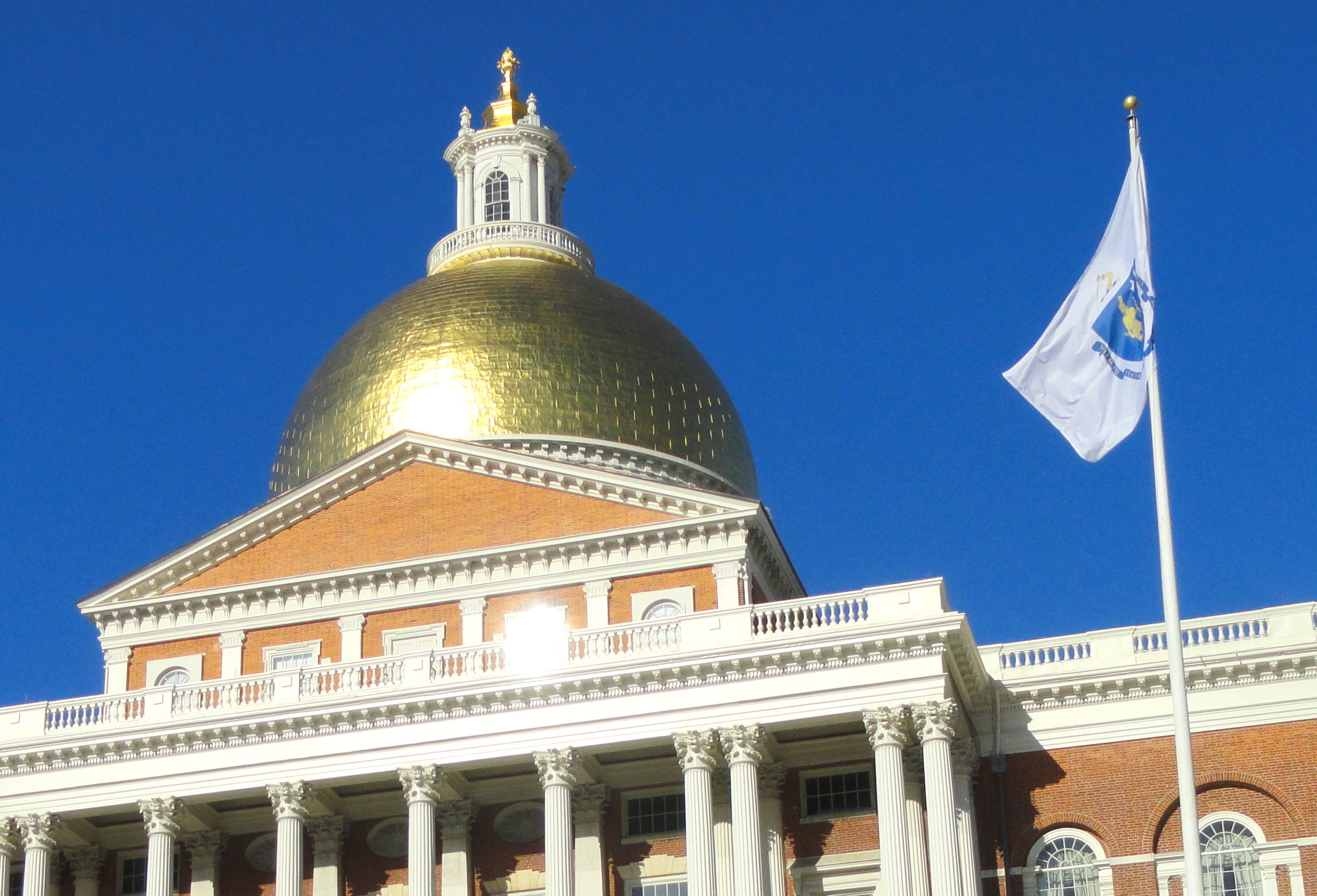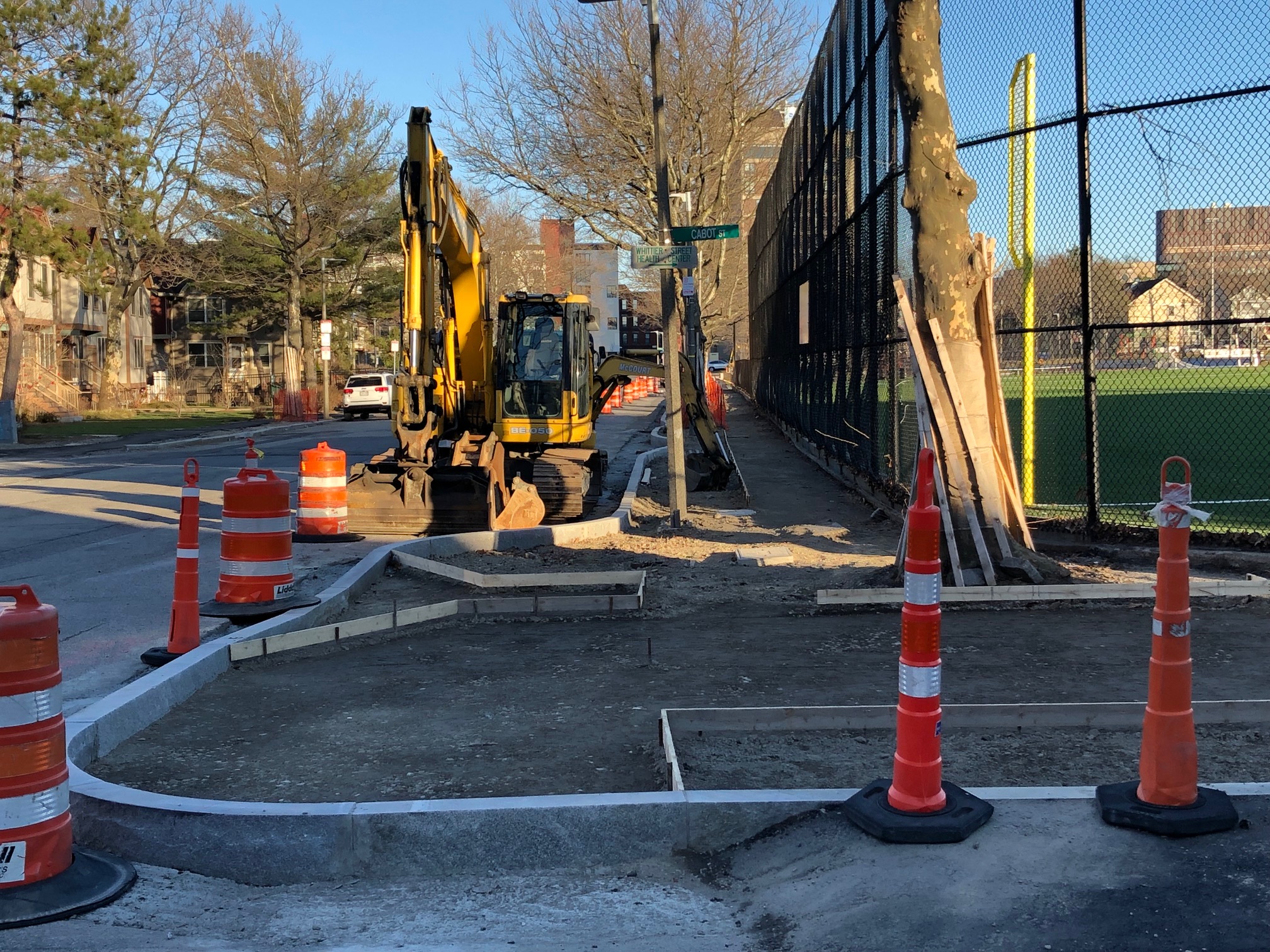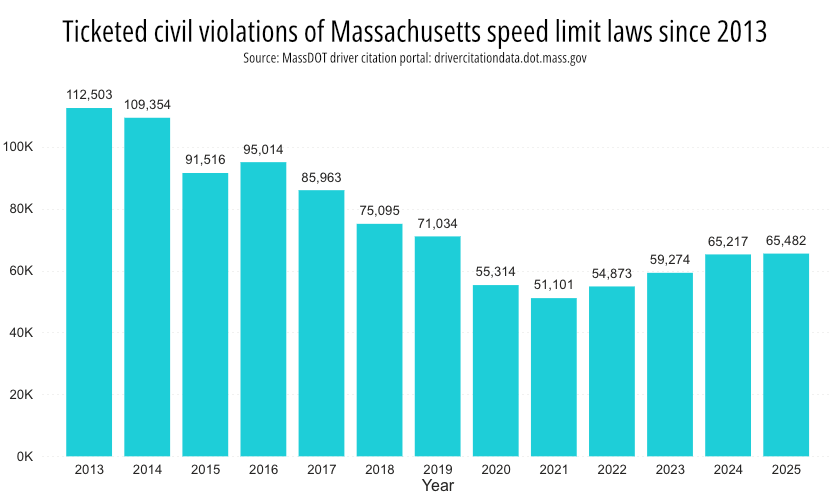The Boston Chamber of Commerce is warning state Senators that "the MBTA will not receive the necessary resources to stabilize (its) short-term finances" under their proposed state budget.
As we reported last week, the MBTA expects that it will need $3.2 billion to cover its operating expenses next year. About two-thirds of that money would come from fares, the T's dedicated portion of the state sales tax, and other sources of revenue (see chart below), but the T is counting on state lawmakers to cover the rest.
Governor Healey and the state's House of Representatives have both endorsed budget packages that would have met the MBTA's immediate funding needs for the next year, along with a one-time infusion of operating reserves for the future using using surplus revenues from the state's new "Fair Share" tax.

But the Senate's budget proposal, released last week, would give the T considerably less money.
If that proposal were enacted, the transit agency would face a budget shortfall of about $190 million starting this summer.
Such a large deficit would likely force the T to reduce transit service and lay off workers, undoing several years' worth of efforts to rebuild its workforce.
To put that shortfall into context, at the end of 2020, while facing a much smaller budget deficit of $128 million, the MBTA's former management team had drawn up a slate of draconian service cuts that included a 20 percent reduction in subway service plus the elimination of 25 bus routes and all ferry service.
'Short of the mark'
James Rooney. the President of the Greater Boston Chamber of Commerce and a former MBTA executive, had a chance to ask Senate President Karen Spilka at a Chamber-sponsored government affairs forum in the Seaport last week.
"2024 was the year that we turned the corner... Talk about your thought process, as it relates to transportation funding and the need for the T to not lurch from crisis to crisis, but really the feeling of stability, so that the team can plan and do what they need to do."
Spilka, who had anticipated Rooney's question, said that "the Senate recognizes the T is really critical to our transportation system (and) the economy of the whole state, not just Boston."
She then went on to assert that "we fully funded the T operations for fiscal year 2026. We poured $820 million into this system between the fiscal '26 budget and the supplemental budget."
A day after the event, the Chamber sent a letter to Senator Spilka and Senate Ways and Means Committee Chair Michael Rodrigues to warn that the Senate budget proposal "falls short of the mark of providing the necessary, multi-year fiscal foundation for ongoing safety, reliability, and service improvements."
"Even the significant resources proposed by the Governor are below the MBTA’s actual need," added Rooney, "making further decreases unmanageable, and (putting) recent momentum to improve the T in real jeopardy."
'No new taxes'
Rooney also served on the Governor's recent transportation funding task force, which recommended shoring up the T's budget, for now, with surplus Fair Share funding.
But the task force also warned that the T has a growing structural budget gap that will soon require a more robust source of dedicated state funding.
"A more equitable pricing system that considers revising current transportation user charges, perhaps alongside variable pricing methods, should be considered and assessed for long-term sustainability," wrote the task force in its final report.
In her speech to a Chamber of Commerce audience in the Seaport last week, Sen. Spilka dismissed that recommendation.
"Our main priority it to hold the line for our residents and our businesses as we head into uncertain waters, and that includes no new taxes," said Spilka.
Ironically, though, she also spent a considerable amount of time boasting about the success of the Commonwealth's newest tax on high-income households.
"(With) the opportunity to make transformative one-time investments in public education and public transportation, thanks to the success of the Fair Share initiative, we have a lot of good news," said the Senate president.
Later, she called the state's unspent Fair Share tax revenue "an incredible opportunity to invest in public education and transportation, two key ingredients in the recipe for our collective success. And we are seizing that opportunity."
Next step: reconciliation
The Senate passed an amended version of its supplemental budget for unspent Fair Share tax revenues last Thursday. Contrary to the Chamber's requests, it did not substantively change the amount of one-time funding the T will receive for its reserves.
However, a reconciliation committee of lawmakers from the House and Senate will now draft a compromise version of the supplemental budget, which will then get a final vote of approval from each chamber.
Read the full text of the legislature's budget proposals:
- Senate Amendment 2514 – supplemental appropriations for fiscal year 2025 Fair Share tax revenues (approved May 8)
- House bill 4010 – supplemental appropriations for fiscal year 2025 Fair Share tax revenues (approved on April 9)
- Senate Ways and Means fiscal year 2026 budget recommendations
- House fiscal year 2026 budget bill (approved on April 30)
Read a copy of the May 8 Chamber of Commerce letter to the Massachusetts Senate here.






